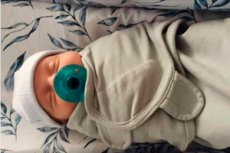New publications
Life after thirty years on ice: in the US a child was born from an embryo frozen for 30 years
Last reviewed: 03.08.2025

All iLive content is medically reviewed or fact checked to ensure as much factual accuracy as possible.
We have strict sourcing guidelines and only link to reputable media sites, academic research institutions and, whenever possible, medically peer reviewed studies. Note that the numbers in parentheses ([1], [2], etc.) are clickable links to these studies.
If you feel that any of our content is inaccurate, out-of-date, or otherwise questionable, please select it and press Ctrl + Enter.

A couple of days ago, a boy was born in Ohio, USA, who became a new record holder for the longest time an embryo was stored before being successfully born. The embryo, conceived and frozen back in 1994, lay in a cryobank for 30 years and 158 days (11,148 days) before being transferred to the uterus of an adoptive mother and giving her a long-awaited child.
How did this happen?
— In 1994, a woman named Linda Archard underwent IVF at an Oregon clinic and received four embryos. After the birth of her daughter and subsequent divorce, she was unable to use the remaining ones. Reflecting on the fate of "little hopes," Linda learned about the Snowflakes program at Nightlight Christian Adoptions, where donors can "adopt" their embryos to other families.
— An Ohio couple, Lindsay and Tim Pierce, struggling with infertility, turned to Rejoice Fertility, a private clinic in Tennessee that specializes in preserving even the oldest samples. Through bureaucratic and logistical difficulties, embryos were sent from Oregon to Tennessee. One of the three embryos transferred successfully survived thawing and implanted.
Result and record:
Dr John David Gordon, who supervised the procedure, confirmed that the 11,148 days of storage set a new world record. The previous record was held by children Lydia and Timothy Ridgeway, who were born from embryos kept in the freezer for 10,905 days.
Why is this important?
— Hope for families: This case gives hope to couples who have been unable to conceive a child naturally and to those whose embryos have been “forgotten” in cryobanks.
— Ethical and legal issues: There are currently about 1.5 million embryos in storage in the United States, many of which are in limbo due to uncertainty about their future fate. Opponents of embryo disposal on religious grounds call for the development of alternatives, including donation.
— A call to reflection: Dr. Gordon says the stories of “revival after a long sleep” are impressive, but also raise the question: Why are so many embryos left in cryogenic containers for decades?
Words from the participants:
- Linda Archard (donor): "I believed that these three little hopes deserved a chance at life, just like my daughter."
- Lindsay and Tim Pearce (parents): "We weren't trying to break a record - we just wanted to be parents."
Now that the boy has been born, both families are hoping to meet and get to know each other. Linda said: “They sent me the first pictures and I dream of seeing them in real life one day.”
